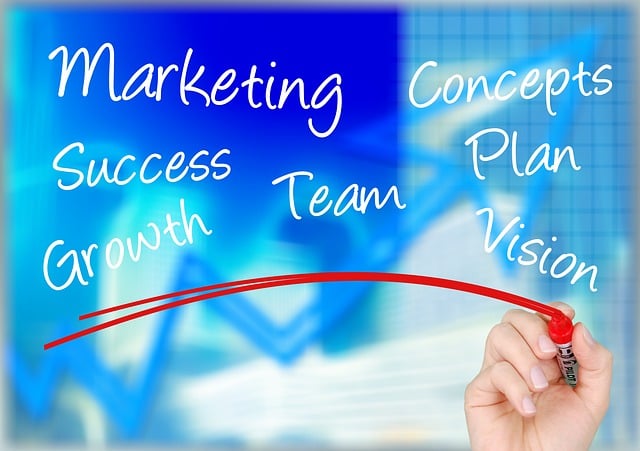AI coaching is transforming RV repair by leveraging advanced algorithms for data analysis, personalized recommendations, and upskilling. Through continuous learning, AI identifies inefficiencies, offers step-by-step guidance, virtual simulations, and interactive modules. This approach accelerates learning, enhances efficiency, and enables teams to tackle diverse challenges confidently. Integrating AI tools tailored for automotive repairs, with comprehensive training and staged implementation, maximizes benefits while addressing initial setup costs and employee training. Despite challenges, the potential gains from AI coaching make it a valuable investment for optimizing RV repair workflows.
AI coaching is transforming the way RV repair teams enhance their skills and optimize processes. By leveraging advanced algorithms, AI offers a personalized learning experience, empowering technicians with efficient troubleshooting methods and up-to-date industry knowledge. This article delves into the benefits of AI coaching, exploring how it can streamline RV repair workflows and elevate overall efficiency. We provide a step-by-step guide to integration and discuss the challenges and advantages for RV repair businesses embracing this innovative technology.
- Understanding AI Coaching for RV Repair Teams
- Integrating AI into RV Repair Workflows: Step-by-Step Guide
- Benefits and Challenges of AI in Optimizing RV Repair Processes
Understanding AI Coaching for RV Repair Teams

AI coaching represents a game-changing strategy for optimizing RV repair workflows within teams. By leveraging advanced algorithms, this technology can analyze complex data sets related to repairs, parts inventory, and team performance. It then provides personalized recommendations and insights tailored to each team’s unique needs. These insights can streamline processes, reduce downtime, and enhance overall efficiency, ensuring that repair teams make informed decisions quickly.
Through continuous learning and adaptation, AI coaches can identify patterns and inefficiencies within existing RV repair procedures. They offer step-by-step guidance, virtual simulations, and interactive modules to upskill team members. This not only accelerates the learning curve but also promotes knowledge retention, fostering a more competent and confident workforce capable of tackling diverse repair challenges.
Integrating AI into RV Repair Workflows: Step-by-Step Guide

Integrating Artificial Intelligence (AI) into RV repair workflows is a strategic move that can revolutionize how teams approach and execute repairs, leading to enhanced efficiency and accuracy. Here’s a step-by-step guide to navigate this transition:
1. Assess Current Workflows: Begin by thoroughly understanding your RV repair processes. Identify the pain points, common issues, and time-consuming tasks. This analysis will help pinpoint areas where AI can make the most significant impact, be it diagnostics, part recommendations, or post-repair quality checks.
2. Choose the Right AI Tools: Select AI coaching platforms or software designed for automotive repairs, including RVs. These tools often come with pre-trained models and customizable features. Look for options that offer natural language processing capabilities for easy query and response interactions and those that can integrate with existing inventory management systems for seamless part suggestions.
3. Data Collection and Training: AI learns from data, so gathering a diverse dataset of RV repair records, diagrams, and manuals is essential. Train the model using this data, ensuring it covers various models, common repairs, and rare but critical issues. The more comprehensive the training, the better the AI’s predictive capabilities.
4. Implement AI in Stages: Start with a pilot program, integrating AI into specific tasks like diagnosing faults or suggesting replacement parts. This approach allows for fine-tuning and addressing any challenges without disrupting the entire workflow. Gradually expand AI’s role as the team becomes more comfortable and the system proves its worth.
5. Provide Training to Technicians: Ensure that your RV repair teams receive adequate training on using the new AI systems. Offer hands-on sessions, tutorials, or workshops to familiarize them with the technology. Encourage open communication to address any concerns or suggestions for improvement, fostering a collaborative environment.
Benefits and Challenges of AI in Optimizing RV Repair Processes

The integration of Artificial Intelligence (AI) into RV repair teams offers a multitude of benefits designed to optimize repair processes and elevate overall efficiency. AI coaching systems can analyze vast datasets, enabling repairs to be performed faster and more accurately. These systems learn from every interaction, improving their ability to diagnose issues and suggest solutions over time. By automating repetitive tasks, AI frees up technicians’ time, allowing them to focus on more complex problems. Additionally, AI-driven training modules ensure that repair teams stay current with industry advancements, enhancing the consistency and quality of service provided.
However, implementing AI in RV repairs also presents challenges. Data privacy and security become critical concerns when integrating AI, as repair records contain sensitive information. Ensuring the secure storage and handling of this data is essential to maintaining customer trust. Furthermore, the initial setup and training of AI models require substantial time and resources, especially for specialized tasks like RV repairs. There’s also a learning curve involved in adopting new technology, which may necessitate additional investment in employee training. Despite these challenges, the potential gains from AI coaching for optimizing RV repair workflows make it a valuable consideration for repair teams aiming to enhance their service offerings.
AI coaching offers a transformative opportunity for RV repair teams to streamline processes, enhance efficiency, and deliver higher-quality repairs. By integrating AI into their workflow, teams can benefit from data-driven insights, automated tasks, and improved decision-making. This not only optimizes repair times but also ensures consistent results. However, successful implementation requires careful planning, tailored training, and addressing potential challenges related to technology adoption and data management. Embracing AI coaching is a strategic move towards future-proofing RV repair businesses and maintaining their competitive edge in an increasingly tech-driven industry.
